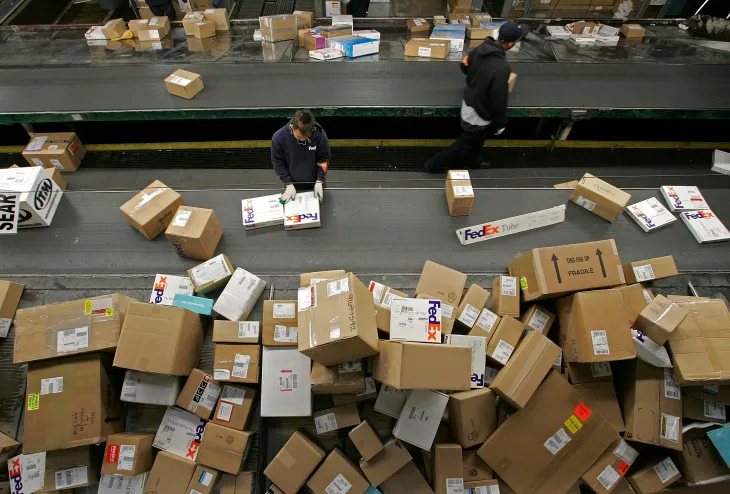E-commerce has rapidly transformed the global retail landscape, providing unprecedented convenience and accessibility to consumers worldwide. However, this growth has brought significant environmental challenges, including increased waste generation, resource depletion, and carbon emissions. The circular economy offers a sustainable solution to these issues by promoting the continuous use of resources and minimizing waste. This blog explores the positive impacts of the circular economy in e-commerce, supported by market insights and future predictions.
Reducing Waste and Resource Consumption
The traditional linear economy operates on a ‘take-make-dispose’ model, which results in substantial waste and resource depletion. In contrast, the circular economy emphasizes reusing, recycling, and refurbishing products, significantly reducing waste and conserving resources.
In the e-commerce sector, companies like Patagonia and IKEA have pioneered take-back programs where customers can return used products for recycling or refurbishment. Such initiatives not only minimize waste but also lower the demand for new raw materials, promoting resource conservation.
As consumer awareness about environmental sustainability grows, more e-commerce companies are expected to adopt circular economy practices. It is predicted that the majority of e-commerce businesses will have integrated circular strategies into their operations, resulting in significant reductions in waste and resource consumption.
Lowering Carbon Footprint
E-commerce companies can significantly reduce their carbon footprints by embracing circular economy practices. The traditional linear economy often involves extensive resource extraction, manufacturing, and transportation, all of which contribute to greenhouse gas emissions. Circular economy practices, such as using recycled materials and localizing production, can mitigate these emissions.
The fashion industry, known for its high carbon emissions, has seen a shift towards circular practices. Brands like ThredUp and Rent the Runway offer sustainable alternatives through second-hand shopping and rental services.
Adoption of circular economy practices in e-commerce is expected to result in a 30% reduction in carbon emissions across the sector. This will be driven by increased use of recycled materials, localized production, and innovative business models such as product-as-a-service (PaaS).
Encouraging Innovation and Economic Growth
The transition to a circular economy in e-commerce stimulates innovation, as companies seek new ways to design, produce, and deliver products. This shift encourages the development of new business models and technologies, driving economic growth.
The circular economy is already fostering innovation in e-commerce. For instance, companies like Loop have introduced reusable packaging systems, reducing waste and encouraging sustainable consumption. The Global E-waste Monitor estimates that by 2025, the market for refurbished electronics will grow by 10% annually, driven by increased demand for sustainable products.
By 2030, the circular economy is expected to contribute $4.5 trillion to the global economy through innovation and the creation of new markets. E-commerce will play a significant role in this growth, with companies continuously developing new circular business models and technologies.
Enhancing Customer Loyalty and Brand Reputation
Consumers are increasingly prioritizing sustainability in their purchasing decisions. E-commerce companies that adopt circular economy practices can enhance their brand reputation and attract eco-conscious customers.
Brands like The North Face and Levi’s have gained customer loyalty through their recycling programs and sustainable practices. A survey by Nielsen found that 73% of global consumers are willing to change their consumption habits to reduce environmental impact, highlighting the growing demand for sustainable products.
Companies that prioritize circular economy practices will see increased customer loyalty and market share, driven by growing consumer demand for sustainable products and services.
Improving Supply Chain Resilience
The circular economy enhances supply chain resilience by reducing dependence on finite resources and mitigating the risks associated with resource scarcity. By designing products for longevity and reusability, companies can create more stable supply chains.
The COVID-19 pandemic highlighted the vulnerabilities of traditional supply chains. Companies with robust circular economy strategies, such as local sourcing and remanufacturing, were better equipped to navigate disruptions. A report by Accenture found that 54% of supply chain executives believe that adopting circular economy practices will increase supply chain resilience.
Companies will increasingly adopt localized production, remanufacturing, and recycling to build more resilient and sustainable supply chains.
Promoting Sustainable Consumption
The circular economy not only impacts businesses but also influences consumer behavior. By providing alternatives to traditional consumption patterns, e-commerce platforms can encourage sustainable lifestyles.
Subscription-based models for products like clothing, electronics, and home goods are gaining popularity. For instance, platforms like My Wardrobe HQ and Yerdle promote sustainable consumption by offering rental and resale services. According to a report by the World Economic Forum, circular economy practices could cut global resource use by 28% by 2050.
Companies will offer a wide range of circular products and services, and consumers will increasingly prioritize sustainability in their purchasing decisions.
Facilitating Regulatory Compliance
Governments and regulatory bodies are introducing stricter environmental regulations. E-commerce companies adopting circular economy practices are better positioned to comply with these regulations.
A study by McKinsey predicts that regulatory compliance costs could be reduced by 20% through circular economy practices.
E-commerce companies that adopt these practices early will not only ensure compliance but also gain a competitive edge in the market.
Conclusion
The circular economy offers a transformative opportunity for the e-commerce sector to address environmental challenges while fostering innovation, economic growth, and customer loyalty. By reducing waste, lowering carbon footprints, and promoting sustainable consumption, e-commerce companies can play a crucial role in creating a more sustainable future. Market insights and future predictions suggest that the adoption of circular economy practices will become increasingly essential, driving long-term success and positive impact in the e-commerce industry. As consumers and regulators continue to prioritize sustainability, the circular economy will be a key driver of innovation, resilience, and growth in e-commerce.




